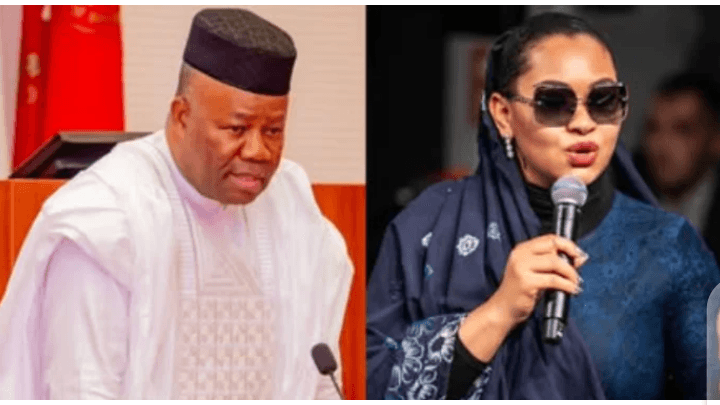Judge Steps Down from Natasha’s Case After Akpabio’s Petition
Judicial Impartiality Under Scrutiny
The ongoing legal battle involving suspended Senator Natasha Akpoti-Uduaghan has taken a dramatic turn as Justice Obiora Egwuatu of the Federal High Court in Abuja recused himself from the case. This decision follows a petition by Senate President Godswill Akpabio, raising concerns about the judge’s impartiality.
Why Did Justice Egwuatu Step Down?
Justice Egwuatu was assigned to preside over the case challenging Akpoti-Uduaghan’s suspension from the Senate. However, during the scheduled hearing, he announced his withdrawal, stating that he would return the case file to the Chief Judge for reassignment. This move has sparked debates over judicial independence and political interference.
Akpabio’s Petition: A Tactical Move?
Senate President Akpabio’s petition questioned Justice Egwuatu’s ability to remain neutral in the case. While the details of the petition remain undisclosed, the timing raises eyebrows. Legal analysts argue that this could be a calculated strategy to delay proceedings or secure a more favorable judge.
The Legal Battle: Key Developments
1. Interim Order Against the Senate
On March 4, Justice Egwuatu issued an interim order preventing the Senate Committee on Ethics, Privileges, and Public Petitions from taking disciplinary action against Akpoti-Uduaghan.
He ruled that the Senate’s disciplinary process should not continue until the case was decided.
2. Senate’s Defiance
Despite the court’s order, the Senate Ethics Committee proceeded with its meeting and suspended Akpoti-Uduaghan for six months.
This move has been seen as a direct challenge to judicial authority.
3. Legal Maneuvering
The defendants later applied for a modification of the court order.
Justice Egwuatu revised his ruling, removing the restriction on the Senate’s ability to act while the case was ongoing.
Implications for Judicial Independence
The judge’s withdrawal raises critical questions:
Is the judiciary being pressured by political forces?
Will the reassignment of the case affect its outcome?
Does Akpabio’s influence extend beyond legislative affairs into the judicial process?

Legal experts warn that if politicians can easily challenge and remove judges from politically sensitive cases, it may set a dangerous precedent. The Nigerian judiciary has faced accusations of political interference in the past, and this case further fuels concerns about judicial integrity.
What’s Next?
With the case now awaiting reassignment, all eyes are on the Chief Judge of the Federal High Court. Whoever takes over will face immense scrutiny, as the outcome could redefine the balance between legislative authority and judicial oversight.
Meanwhile, Akpoti-Uduaghan remains defiant. She has vowed to continue her legal fight, arguing that her suspension was unconstitutional.
Conclusion
The battle between Natasha Akpoti-Uduaghan and Senate President Godswill Akpabio is far from over. This case is more than just a legal dispute—it is a test of Nigeria’s judicial independence and the rule of law. As the drama unfolds, Nigerians are watching closely to see whether justice will prevail or political influence will once again dictate the course of the nation’s judiciary.



[…] Read More Articles on Natasha vs Akpabio Saga […]